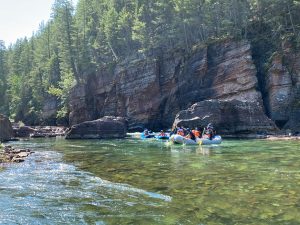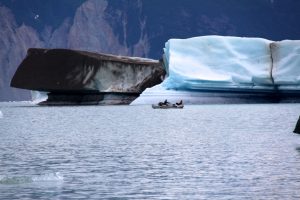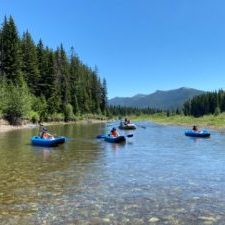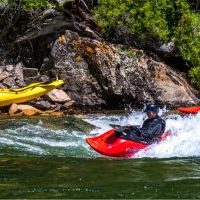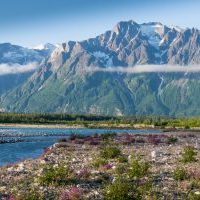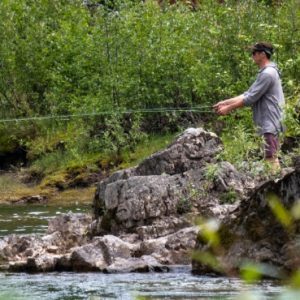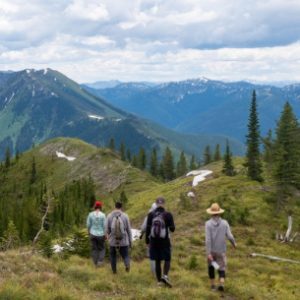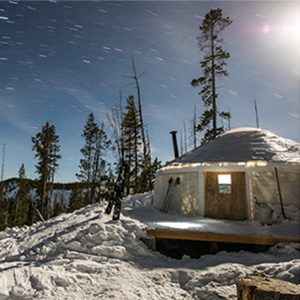Fire Talk Series, Episode 3: Starlink Finds the Wilderness
February 2, 2024
“The great purpose is to set aside a reasonable part of the vanishing wilderness, to make certain that generations of Americans yet unborn will know what it is to experience life on undeveloped, unoccupied land in the same form and character as the Creator fashioned it… It is a great spiritual experience. I never knew a man who took a bedroll into an Idaho mountainside and slept there under a star-studded summer sky who felt self-important that next morning. Unless we preserve some opportunity for future generations to have the same experience, we shall have dishonored our trust.” -Frank Church, Senator of Idaho (1957-1981)
Source: Remarks delivered during debate of the Wilderness Act in 1961 Quoted in Endangered American Wilderness act of 1977, Hearings on S 1180, September 19 and 20, 1977, United States Senate committee on energy and Natural Resource
Have you ever wondered how the evolution of Starlink and its services will impact wilderness adventure? WE HAVE! This reality is something that causes great anxiety amongst guides and outfitters alike to the extent that most of us would rather be in denial and not talk about it rather than prepare for the imminent truth. Starlink is coming for the wilderness, and we are powerless to stop it.
Why does this make people like us fearful? In some ways, wilderness ceases to be wilderness when impacted by human technologies. Wilderness is multifaceted and holds different meanings and importance depending on the individual. I was reading this really great children’s book “Life”, to my three-year-old a couple of years ago and it has such a lovely theme of conservation and love for all wild creatures. My one hang-up was the conflict of the story. The problem at the apex of the story was that we will all encounter wilderness from time to time- and wilderness was displayed by dark illustrations and beady animal eyes as if to compare a wilderness to a threatening and dangerous no-man’s-land. And indeed, no-man’s land is in part the core of wilderness’ definition, however the messaging that wilderness is somehow dangerous and forbidding felt ominous to me. This is just one example of how wilderness could symbolize Shangri-la to one person and for another, wilderness could be a mysterious land of unknown and possibly…maybe…some evil monsters could live there.

I’d like to explore the word wilderness a bit more to gain some context for the introduction of Starlink. Merriam Webster characterizes wilderness as:
- a: A tract or region uncultivated and uninhabited by human beings.
b: An area essentially undisturbed by human activity together with its
naturally developed life community.
As a 16-year river guide and someone who grew up with the privilege to enjoy wilderness, I have my own feelings about wilderness that seem to sprout from a strong foundation rooted in the Merriam-Webster mentality. When I started guiding people through the wilderness of Idaho, rapid technology growth was a rising tidal wave out in the ocean that had yet to crash into land. Since then, I have seen the tremendous changes in society that have led to an increase in demand and need for Wilderness trips. Some people are very conscious about why they crave these trips. Some have no idea why they are so appealing, like a moths to the flame, they are driven by some natural urge akin to migratory animals shifting geographical locations seasonally. These wild spaces have always been a place of refuge for folks to reset and draw strength and energy. More recently, I have seen wilderness trips as an effective retreat for detox from devices, the concept of “unplugging to reconnect”. Wilderness trips, amongst many other things, are trips where humans can recharge their natural batteries.
Unlike the omnipresent electrical outlets in all of our structures, there are fewer outlets for human beings. These trips are incredibly valuable and offer a limited resource as powerful as electricity. The healing power of these trips is amplified and maybe only possible through the absence of screens and technological distraction.
Wilderness trips are medicinal. Your primary care provider, your yoga teacher, your therapist, your family and friends may be telling you that you need to take a vacation, find coping mechanisms for your stress load, learn to meditate. This is an experience common to most of us these days- adrenal fatigue. Our modern world is dominated by the blue light of our screens, the constant ding of our phones, and the schedules we hold; shuttling vehicles from work to soccer practice to the store to piano and home again. There is little time to feed ourselves let alone take a deep long breath, or find the time to become involved with a meditation practice. It is all truly dizzying, and this is the pace of life many of us keep on the daily. Our loyal brains need moments of quietude. There is no true silence, and even when we have regulators on our phone for screen time, with a moment of down time our addiction to our devices takes hold. When given the chance to read a book, practice a new hobby, take a nap- many of us scroll through our apps first just to make sure we aren’t missing something, only to lose half an hour to the ether.
For me, wilderness is a place where you can find truth and reality. The modern world is using technology to evolve at a rate that far surpasses our capacity to keep up mentally and emotionally. Much of what I feel about wilderness is a return to the natural essence of what it means to be human. When you are in wilderness, you enjoy uninterrupted peace, everything is in a natural balance, in the moment. Health is contingent on an inherent interconnectedness of all things that work in a highly intelligent community to provide each living and non-living thing with everything they need to live in harmony. In the absence of humans metaling with these systems, these “wild” places are the epitome of a utopic dream.
Wilderness facilitates experiences of human nirvana. If you are able to visit for a vacation with intention and the mentality of a respectful visitor, you can reap the benefits of simply being in these places. These trips can be highly spiritual, enlightening and cleansing for people. The modern world cannot wait to pack your brain and your to-do list with no end in sight, and when we enter the wilderness, an organizational emptying and prioritizing takes place so passively that all you need to do is participate in a great and unburdening exhale. Wilderness has no agenda for you, she is a Zen master.
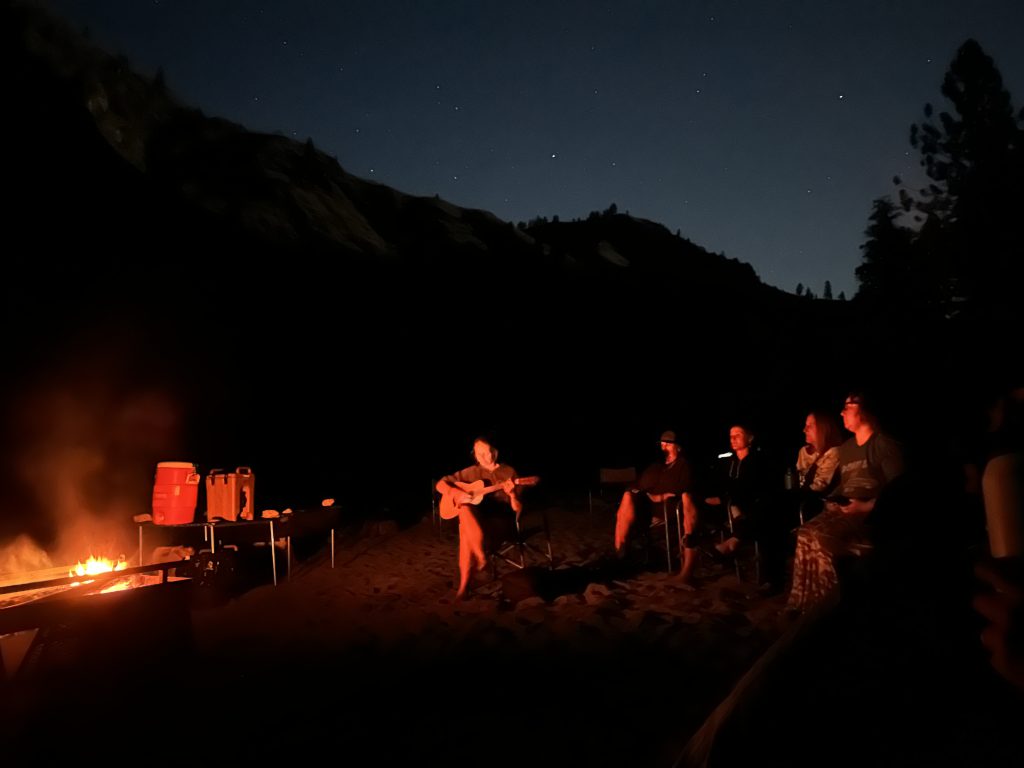
Now that we have dipped our toes in the waters of wilderness, we can return to the precipice of introducing Starlink to these places. For the contrarians out there, I am aware there will be some advantages in doing so, but it will be hard to convince me that they outweigh the negative impacts. These places are the very last places where we can get away from our loud and stress-inducing human reality. Now, imagine this: Real-time Instagram, Facebook, TikTok, LinkedIn, Twitter and all of the work notifications you can handle, prompting you to respond and work. The news updates are rudely interrupting your blissful and intentional ebb. You wouldn’t do that? It may not matter, because there are others on your adventure who have their phones out next to you, and they are excited that internet is now available on their wilderness trip, as they were anxious about the withdrawal.
The landscape of wilderness trips is about to change forever. It’s no wonder no one wants to talk about it, because Starlink is threatening the precious characteristics that make wilderness trips what they are. The intrusions that Starlink would provide in these spaces could easily be viewed as contraindications to the meditative state of mind that wilderness helps you attain. If the essence of these trips and the true value comes from communing with nature, harmonizing yourself with the natural rhythm of the earth and detoxing from technology in order to give your adrenals a rest from fast-paced lives and the demands of work, we have a responsibility to consider the implications of Starlink enjoying no boundaries. If we draw on the dictionary definition of wilderness, we may see that Starlink in the wilderness makes it…no longer a wilderness? The wilderness act was instated in September of 1964, and you can view the entirety of the Wilderness Act here: https://www.fs.usda.gov/Internet/FSE_DOCUMENTS/fseprd645666.pdf
Here we have another, more thorough definition of what wilderness means through the legal eyes of the United States Government:
A wilderness, in contrast with those areas where man and his works dominate the landscape, is hereby recognized as an area where the earth and its community of life are untrammeled by man, where man himself is a visitor who does not remain. An area of wilderness is further defined to mean in this Act an area of undeveloped Federal land retaining its primeval character and influence, without permanent improvements or human habitation, which is protected and managed so as to preserve its natural conditions and which (1) generally appears to have been affected primarily by the forces of nature, with the imprint of man’s work substantially unnoticeable; (2) has outstanding opportunities for solitude or a primitive and unconfined type of recreation; (3) has at least five thousand acres of land or is of sufficient size as to make practicable its preservation and use in an unimpaired condition; and (4) may also contain ecological, geological, or other features of scientific, educational, scenic, or historical value.
The areas I highlighted are problematic when we consider the implementation of Starlink within the borders of wilderness, and that doesn’t include the nature of the “rules” of wilderness (which I will let you read yourself with the link I provided above). Both the definition of, and the uses of wilderness are at stake as technology has outgrown the legal confines of the Wilderness Act itself. The sentiment under which the Wilderness Act was designed remains pure and true, but there was no way these policy makers could have conceived the event of the internet, let alone a satellite service that made it available to every nook and cranny of our wild spaces. Elon Musk and all of his holdings are pioneering and exploiting unregulated territories well before we have the social structure in place to discuss right and wrong, issues of privacy or the legality around any of it. Conveniently for Elon, these topics are ethereal and ambiguous, hard to pin down in the court of law. For now, the invisible world of wireless signals remains a lawless wild west. This is a prime example of technology progressing in an out of control trajectory, light years ahead of our ability to digest its impacts on the health of human culture.
“There is just one hope for repulsing the tyrannical ambition of civilization to conquer every inch of the whole earth. That hope is the organization of spirited people who will fight for the freedom and preservation of the wilderness.” -Bob Marshall
Okay whoa…overwhelming. Yes it is! We have a potential problem here, let’s explore it in its entirety and then let’s zoom out and see what is in our control to act upon. What can we do about it, as a river guide, an outfitter and a wilderness culture? We have a responsibility to preserve the integrity of the wilderness trip in a way that doesn’t make the guest feel like they are missing out, but makes it clear that our policy is the thoughtful and ultimate value-add. Finding the perfect solution is like traveling terrain akin to some of our wildest river trips, and of course we are open to suggestions. Here are some initial ideas:
- Suggest people leave their devices behind in a safe location.
Possible problems: Not everyone wants to. Many people use their phones as cameras.
- Make screen time rules for the trip. If you are bringing your device, you are a free American citizen, however in order to maintain the integrity of the wilderness trip we ask that you use your devices out of eye and ear shot of the group.
Possible problems: This pulls you away from your communion with nature and developing meaningful relationships with those on your trips.
- Some synergy of 1&2. In order to respect all of those on the trips and their concepts of a wilderness adventure, everyone wins?
- and on- something else entirely!?
If internet is available, the temptation is omni-present. That possibility lurks in your mind where it didn’t exist before. Some of us may worry about what we are missing rather than the important moment we are living in right now, and we need a reminder the simplicity of living in the moment is not a movement backwards. If we can learn the lessons of wilderness, we can return to our lives more balanced and efficient human beings.
“Going back to a simpler life based on living by sufficiency rather than excess is not a step backwards. Rather, returning to a simpler way allows us to regain our dignity, puts us in touch with the land, and makes us value human contact again.” -Yvon Chouinard
While this is a pivotal moment in the history of the Wilderness Act, the outdoor recreation industry, and many other worlds colliding, it should be viewed as an opportunity- not a travesty. We have a chance to evolve and reestablish our meaning of wilderness through demanding the type of intentional adventure we wish to take. If you read this far, I know this matter pulls on your heart strings, and I would love to continue the conversation with you. I would love to hear about your considerations, opinions, new enlightened facts and ideas for the future. What kind of a trip do you want to show up to, and how can we navigate Starlink in the wilderness as a company that specializes in the wilderness experience? We would love to hear your thoughts on this topic, feel free to email [email protected].
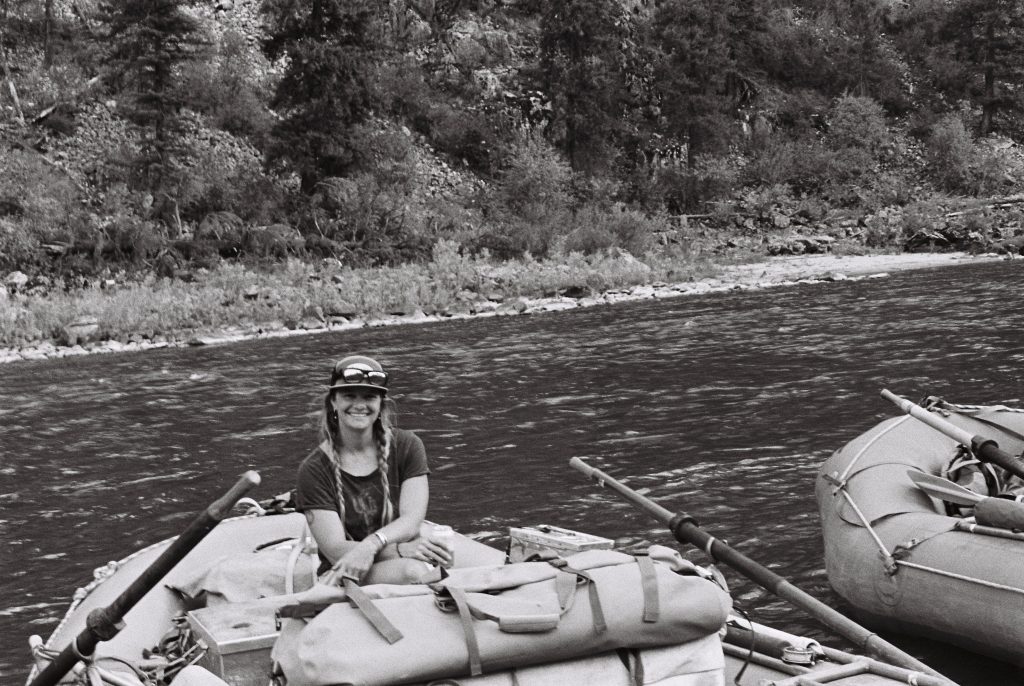
“I went to the woods because I wished to live deliberately, to front only the essential facts of life, and see if I could not learn what it had to teach, and not, when I came to die, discover that I had not lived.” -Henry David Thoreau
I for one, feel sad that someone else has the power to be the architect of our wild spaces because of money and influence. Wilderness River Outfitters seeks to form bonds with the every-day wilderness lover in order to reclaim wilderness for the every-day human. As we have explored several concepts on wilderness, personal opinions, the dictionary’s perspective and the Congress’ Wilderness Act itself, I would like to leave you with a few more enchanted words of philosophers before I get to hear about yours!
“A civilization which destroys what little remains of the wild, the spare, the original, is cutting itself off from its origins and betraying the principle of civilization itself.” -Edward Abbey
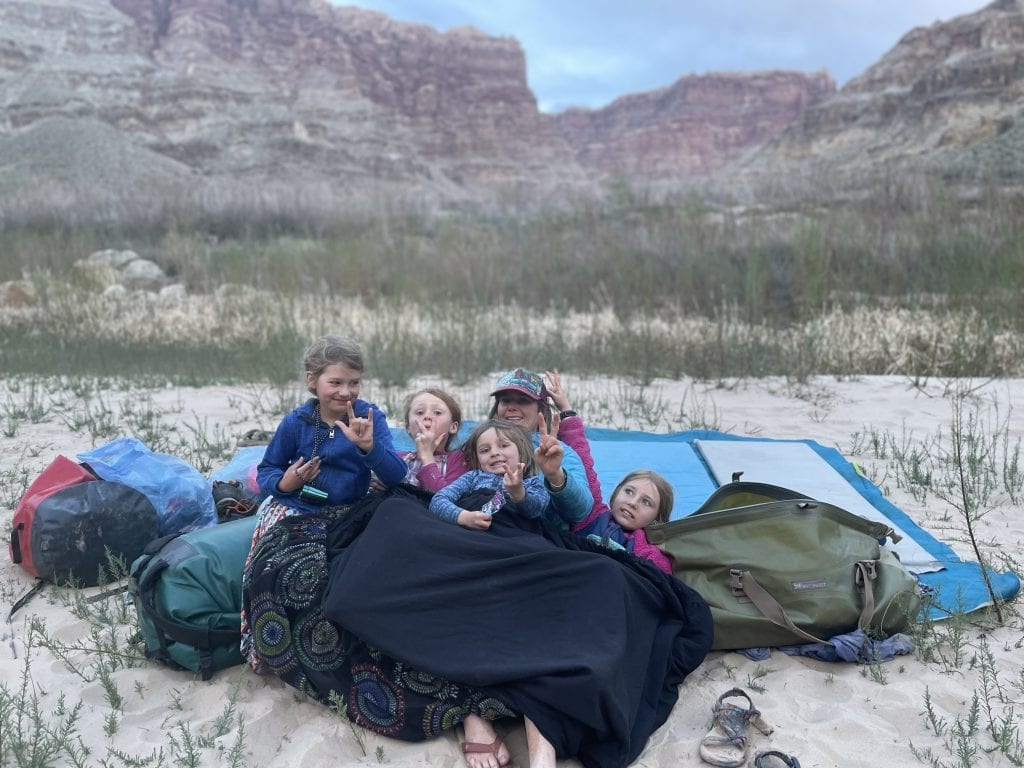
“The richest values of wilderness lie not in the days of Daniel Boone, nor even in the present, but rather in the future.” -Aldo Leopold
